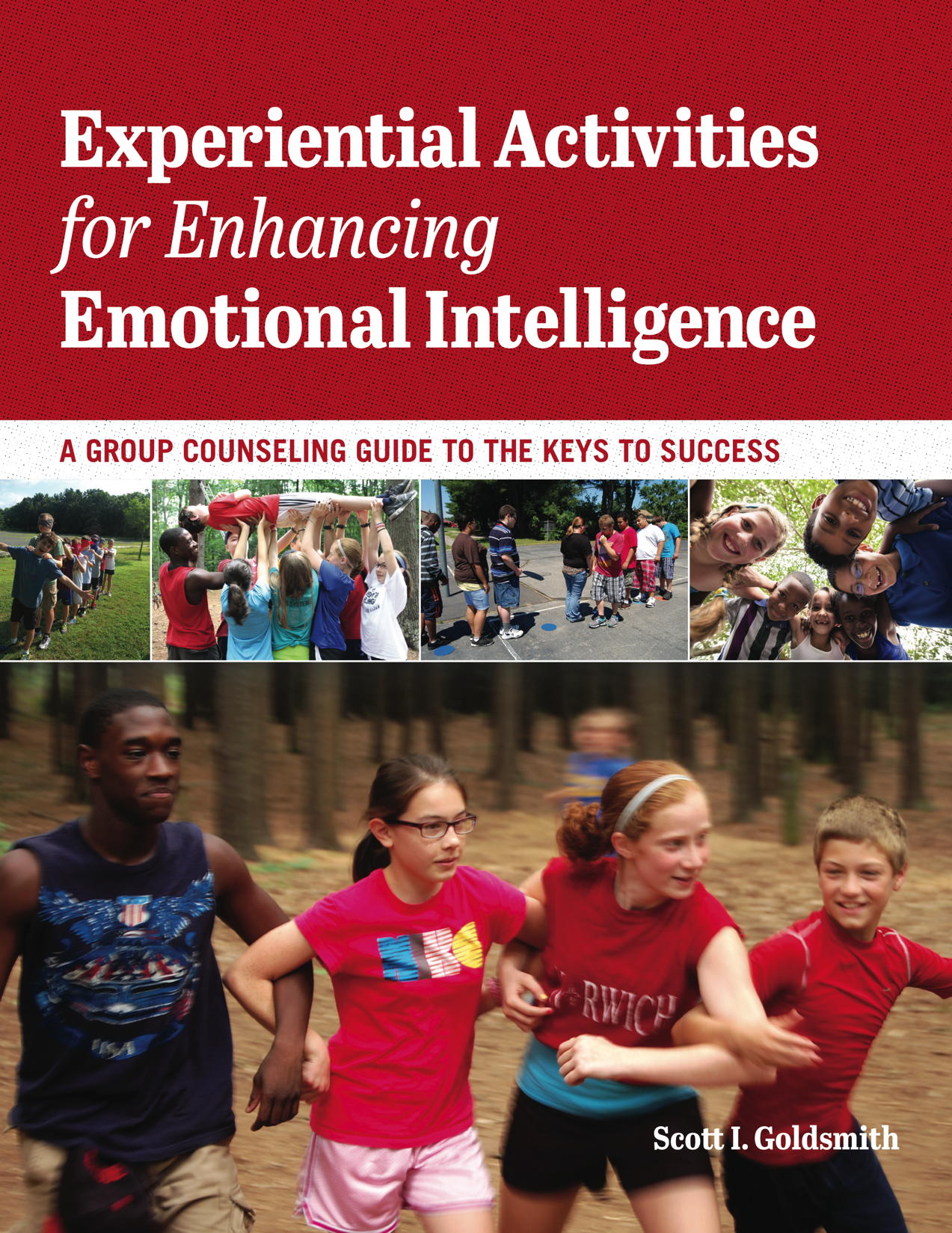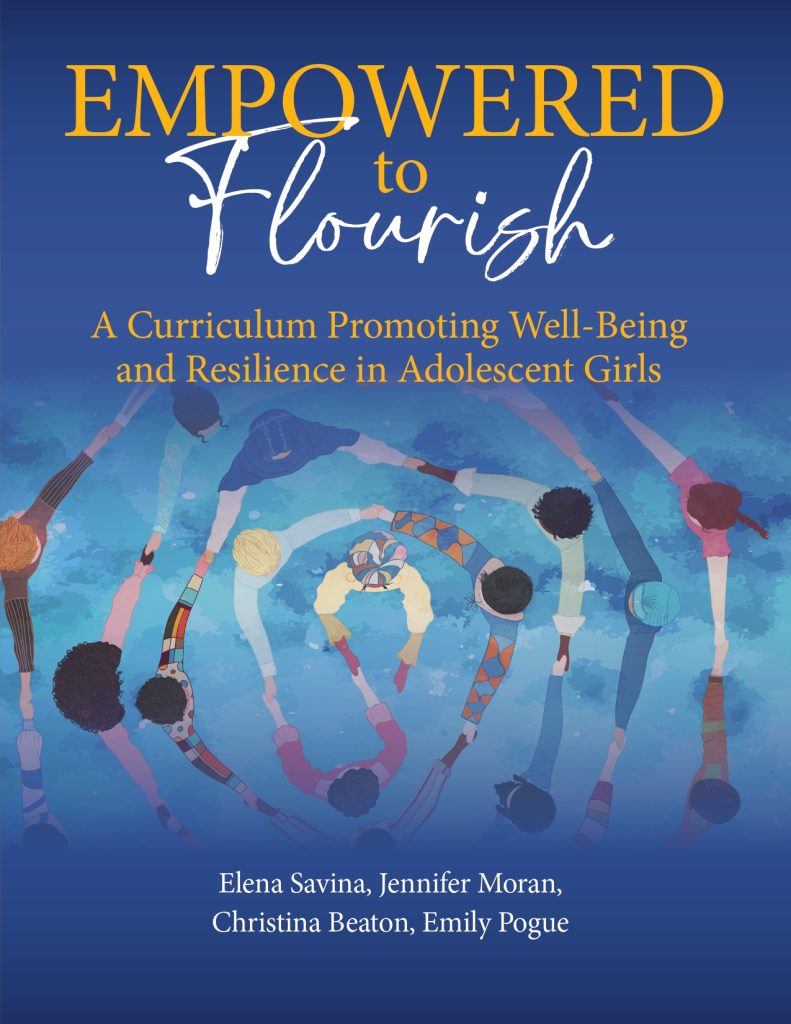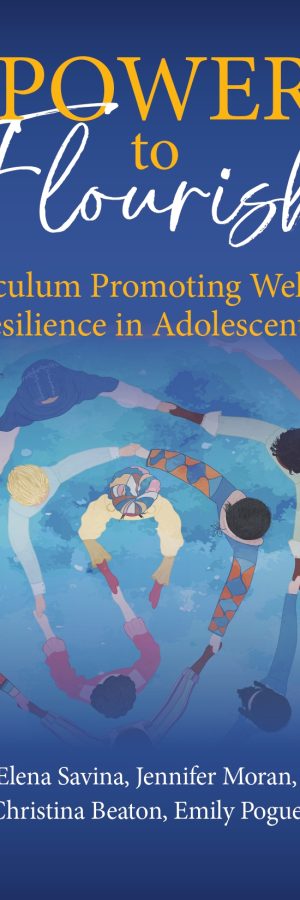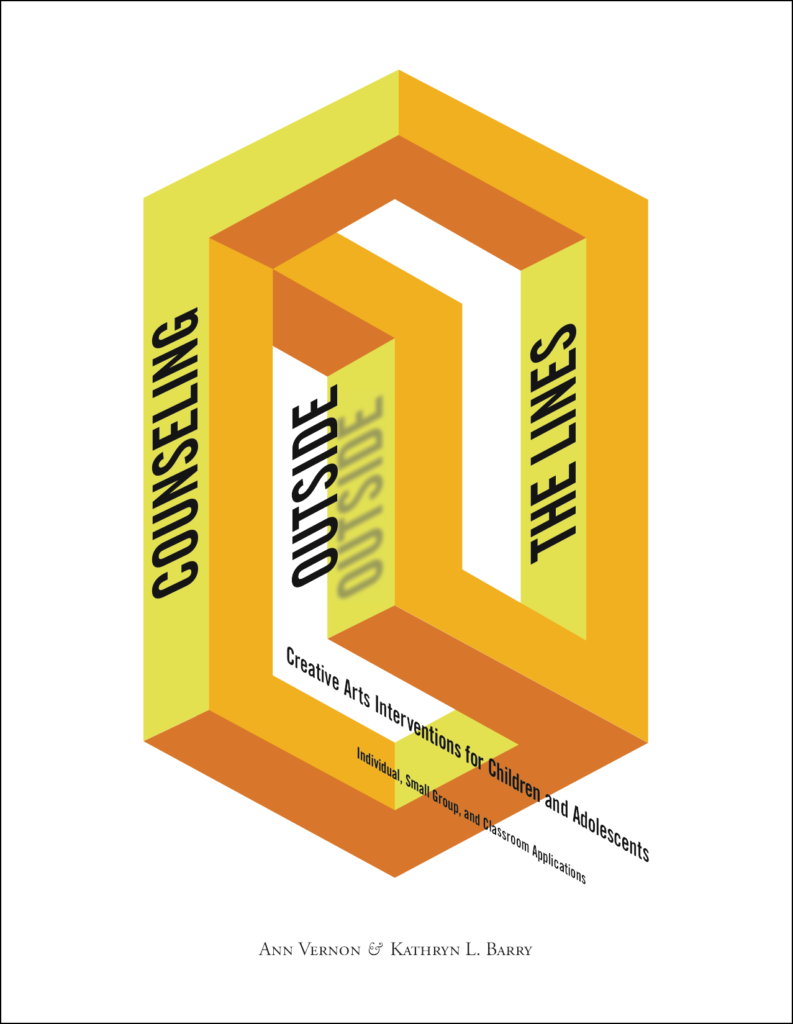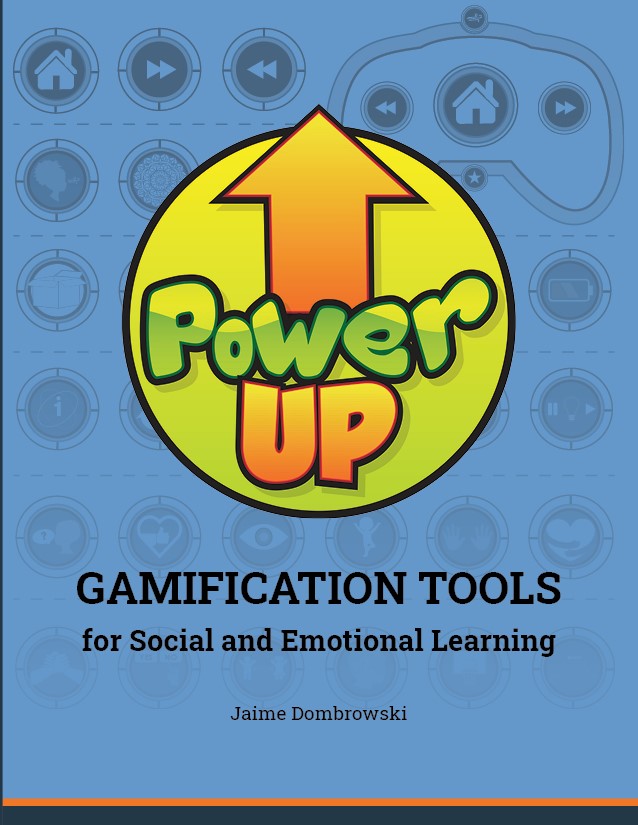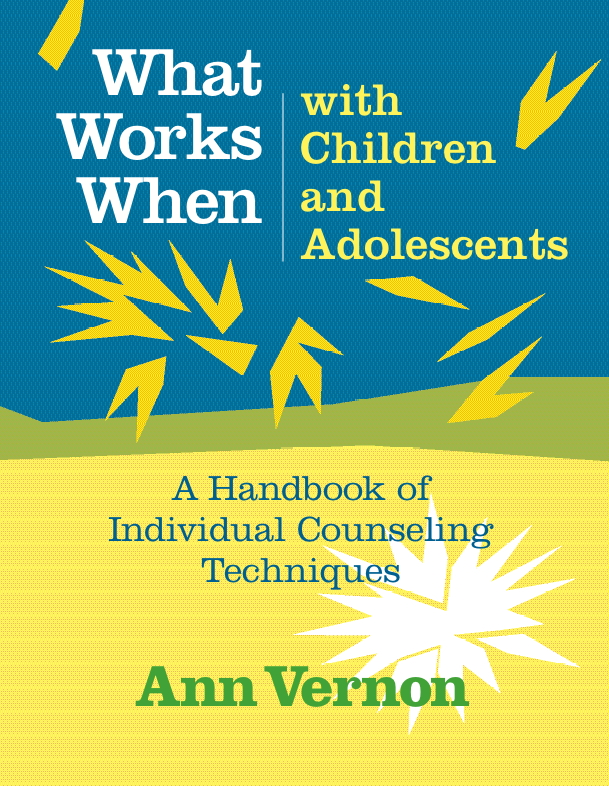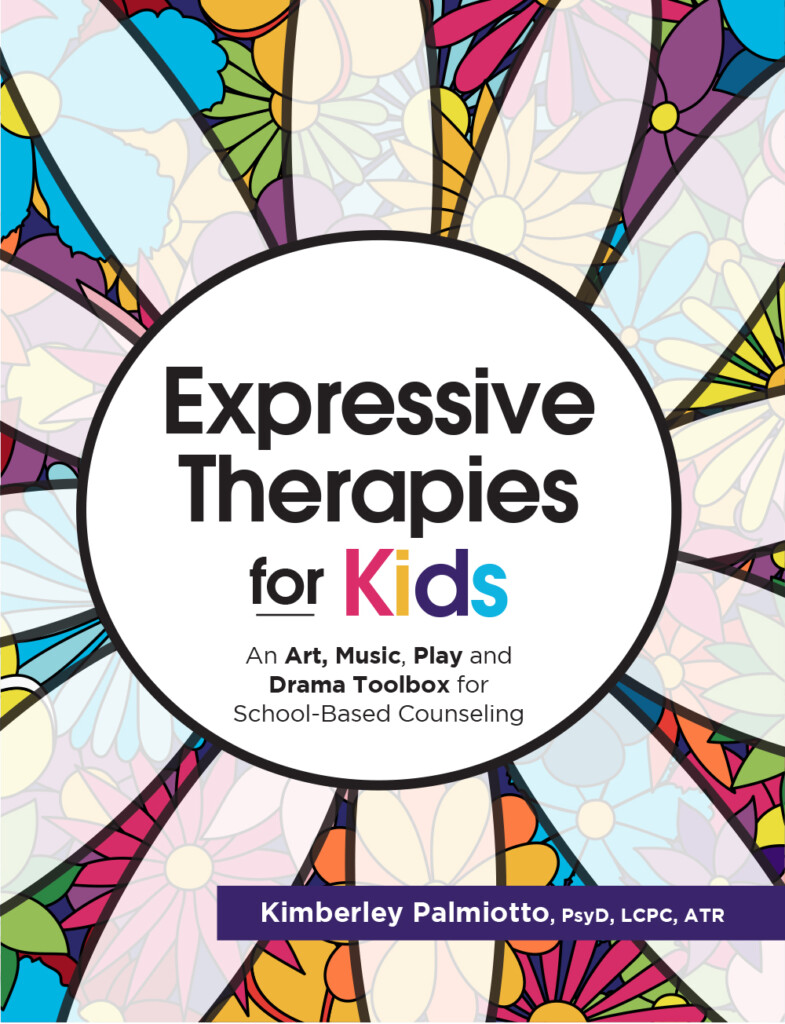Listen to the Prosocially Yours podcast shown below featuring author, school psychologist and licensed counselor Scott Goldsmith.
Designed for counseling professionals working with children and young adults, the book’s activities unite the joy of adventure-based games with training in emotional awareness, behavioral control, and relationship skills—crucial building blocks for personal success.
Comprehensive, user friendly, and just plain fun, this book brings experiential activities to the service of enhancing emotional intelligence.
Key Content
- An introduction to the program and its foundation in experiential counseling, adventure-based group work, and theories of emotional intelligence
- Over 150 experiential activities, all time-tested and specifically designed to enhance skills in emotional intelligence
- A user-friendly format that lets readers quickly match games to participants, identify objectives, and find step-by-step guidance
- Multiple options for adapting activities and sequences to special-group needs
- A wealth of facilitator supports, including activity tools, worksheets, and strategies for engaging participants and debriefing activities
- Three sample curricula for running anger-management, depression-support, or leadership training groups
Facilitators will find the activity sequences suitable for emotionally and behaviorally challenged youth as well as any participants seeking enhanced learning and personal growth.
Filled with tried-and-true favorites and new approaches, the book offers everything from icebreakers and name games to low- and high-level initiatives and trust activities. Facilitators and participants are sure to find something that connects—and promotes fun!
Author Scott Goldsmith his history with experiential counseling and discusses the challenges of working with youth during this in-depth interview hosted by Elizabeth Hess.
Book Reviews
“In Experiential Activities for Enhancing Emotional Intelligence, Scott Goldsmith provides an invaluable and rich resource for counselors, psychologists, teachers, and other professionals who are interested in fostering emotional intelligence through experiential learning.’ … Furthermore, the book is organized in a manner that allows counselors and facilitators to tailor their counseling program according to the group’s needs, developmental level, and learning and behavioral objectives.”
—Shani Beth-Halachmy, PhD, NCSP, Communiqué, published by The National Association of School Psychologists (NASP)
“Scott Goldsmith has taken two important topics, emotional intelligence and experiential learning, combined them, and created a roadmap that any facilitator can follow. Well done, Scott!”
—Jim Cain, PhD, Teamwork & Teamplay
author of Teamwork & Teamplay and Rope Games
“Experiential Activities for Enhancing Emotional Intelligence is truly a guide to “move” groups of learners into action. Building from a strong foundation in experiential counseling, Goldsmith articulates practical strategies for explaining, experiencing, and enhancing emotional intelligence. A valuable treasure trove of tested activities that will be reliable for lifetimes.”
—-Chris Cavert, EdD, Assistant Professor,
Northeastern Illinois University
experiential educator, author and trainer
“Scott Goldsmith’s book Experiential Activities for Enhancing Emotional Intelligence is an amazing compilation of experiential therapeutic activities for young people. He takes his concept of the three Keys to Success and weaves them into a multimodal approach to facilitate emotional growth and skill building for youth and young adults.”
—Laura M.I. Saunders, PsyD, ABPP
Licensed Psychologist, Board Certified in Clinical Psychology
Young Adult Services, Institute of Living, Hartford Hospital
Scott I. Goldsmith, author of Experiential Activities for Enhancing Emotional Intelligence: A Group Counseling Guide to the Keys to Success, discusses his book that was designed for counseling professionals working with children and young adults.
It seems that educators face a host of problems these days. You do much of your work in school-based settings. How do the activities and concepts in this book address some of these concerns?
If you ask educators and others working with today’s kids and teens, you will likely hear that some of the biggest problems are lack of social and relationship skills, negative attitudes, disrespect towards each other and adults, and lack of focus and tenacity, or grit. While these issues have become more prominent for a variety of reasons, it is falling more and more on school staff and other youth workers to address them. Through highly engaging, fun activities, and tailored debriefing techniques, the book helps kids develop what I call the Three Keys to Success: emotional awareness, behavioral control, and positive relationships.
Your title implies that the concepts and activities in this book will help enhance emotional intelligence. What do you mean by that?
I believe we are experiencing a sort of national crisis in emotional intelligence. Kids appear to have more difficulties understanding and managing their emotions and behaviors and establishing relationships with others than at any other time in my 20-year career. In my book, I have taken the sometimes complex topic of emotional intelligence and boiled it down to Three Keys to Success, which provide a simple language where adults and kids alike can communicate about complex issues. By connecting each activity to the Three Keys to Success, the book addresses these emotional intelligence weaknesses in a fun, highly engaging manner. It’s not easy to engage kids today, and these activities do it with minimal props and in almost any physical environment.
Why would anyone providing traditional counseling consider using experiential counseling methods?
While there will always be a place and need for traditional talk-based therapeutic methods, there are some distinct advantages that experientially based counseling methods have over traditional methods for many groups. First, the activities are highly engaging, even for those kids who are usually disengaged. Second, whatever difficulties a child has with emotional regulation, behaviors, or relationship skills will surface at some point during the activities. This gives the facilitators of these types of groups the unique opportunity to intervene while a behavior is actually occurring, as opposed to talking about it after the fact. Finally, the activities themselves are a vehicle to get to the conversations you hope to have with these kids. If I try to open a discussion about anger management or goal setting or support systems in a traditional talk group with the kids I work with, some may engage, but others will have their heads down or simply zone out. When kids engage in these activities, they want to talk about what happened. From there, using the debriefing techniques and questions in the book, it’s much easier to help them connect what happened during the activity with their real lives and readily engage in deeper discussions.
Do the activities in the book help kids with skills that prepare them for the real world, so to speak?
Forbes has a list of the top 10 skills employers most want in their 20-something employees. The top four were the ability to work as a team; the ability to solve problems and make decisions; the ability to plan, organize, and prioritize; and the ability to communicate effectively. These are exactly the skills the book focuses on developing. While we can talk about these skills till we’re blue in the face, the best way to learn them is experientially.
It seems that our education system has realized that creating a positive school climate is essential in fostering a conducive learning environment. Does your book promote a positive school climate in some way?
If you look at the factors that the National School Climate Center considers essential, they include supportive norms, respect, staff and student engagement, staff modeling, and a belief that everyone contributes to the educational environment. These factors align with the Full Value Commitment in experiential counseling, a living philosophy that provides the foundation for everything else we do. It emphasizes fully valuing each member. Facilitators act as models; students are engaged and are learning skills such as communication, problem assessment, planning, and goal setting.
What traditional psychological theories or perspectives were important in developing your book?
There were many, including social learning theory. But for me, Maslow’s Hierarchy of Needs was essential. In order for students to be in their optimal zone for learning and creating, we need to take care of lower level, basic needs. A student who doesn’t feel safe, doesn’t feel like they belong or are respected, will not be able to learn effectively. Experiential groups, and in particular those using the Keys to Success philosophy, meet many of these lower level needs. The full value commitment helps kids feel safe. This creates an atmosphere of respect which fosters a sense of community, encouraging each participant to trust more. That trust allows them to explore their issues and move towards the best they can be.
Today’s educators are very busy, with many demands that they must meet. I know that learning a whole new way of doing things can be daunting. Is it difficult to take this book and make it useful?
While I have directly connected emotional intelligence and experiential teaching and counseling methods, the concepts in the book are not really new. Most of us learn most naturally through experience and reflection. That is what this book has you do. The activities in the book can modified in so many ways to fit all sorts of groups. I have used the same activities for Fortune 500 company team building programs and depression support groups, leadership groups and social skills groups. There is enough guidance and structure in the book to allow someone just starting out with experiential counseling to use the activities effectively. There’s also enough flexibility to allow experienced facilitators the ability to customize activities in the book and use them in a way that maybe they haven’t been used in the past.
Many educators and parents believe that today’s youth are overly connected, technologically speaking. Do you feel that has impacted our kids, and does your book help address that issue?
From what I have seen, the reliance on communicating through electronic means has had a negative impact on social skills. Many of today’s kids don’t seem to have the basic skills to form healthy relationships with either adults or peers. Experiential groups provide a sort of old-fashioned form of fun that many of us adults grew up with. When kids engage in this purposeful play, they begin to lose themselves in the fun. Debriefing the activities makes their value beyond the fun become evident as you watch skills begin to improve.
For additional information about the author, visit his author page.

